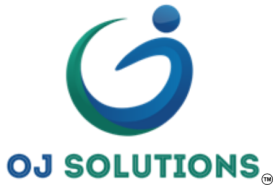The way businesses store, manage, and access data has changed forever. No longer confined to bulky servers in back rooms, companies are now moving operations to the cloud—a flexible, scalable, and cost-effective solution. In 2025, cloud computing is not just a trend; it’s a necessity for businesses that want to remain agile and competitive.
At OJ Solutions, we’ve seen first-hand how cloud adoption transforms businesses. From improved collaboration to reduced IT costs, the benefits are undeniable. The question is no longer if your business should move to the cloud, but when. And the answer is: now.
What is Cloud Computing?
Cloud computing is the delivery of computing services—such as storage, servers, databases, networking, and software—over the internet (“the cloud”). Instead of owning and maintaining physical hardware, businesses rent access to resources from cloud providers, paying only for what they use.
Why Cloud Adoption Matters in 2025
- Flexibility and Scalability
Business needs change, sometimes overnight. Cloud platforms allow companies to scale resources up or down quickly without heavy infrastructure investments.
- Cost Savings
Cloud computing eliminates the need for expensive on-site servers and reduces maintenance costs. Companies only pay for what they actually use.
- Business Continuity and Disaster Recovery
With data securely backed up in the cloud, businesses can recover quickly from unexpected events, whether it’s a system crash, cyber-attack, or natural disaster.
- Remote Work Enablement
In today’s hybrid world, employees need access to data and applications from anywhere. Cloud solutions ensure secure collaboration across teams and time zones.
- Enhanced Security
Contrary to common fears, cloud providers often deliver stronger security than many businesses can achieve in-house. Advanced encryption, constant monitoring, and compliance standards help protect sensitive information.
Types of Cloud Models
-
- Public Cloud: Services offered over the internet by providers like Microsoft Azure, AWS, or Google Cloud.
- Private Cloud: Dedicated infrastructure for one business, offering more control and security.
- Hybrid Cloud: A combination of both, balancing flexibility and privacy.
Challenges to Consider
While the benefits are clear, businesses must plan their cloud migration carefully. Challenges include data migration costs, integration with legacy systems, and ensuring compliance with industry regulations. Partnering with an experienced IT consultancy, like OJ Solutions, helps businesses navigate these challenges smoothly.
Conclusion
Cloud computing is no longer the future—it’s the present. Businesses that delay cloud adoption risk falling behind competitors who are already enjoying greater efficiency, lower costs, and improved collaboration.
At OJ Solutions, we provide tailored cloud solutions that help businesses unlock the full potential of digital transformation.
Ready to move your business to the cloud? Contact OJ Solutions today to start your journey.


